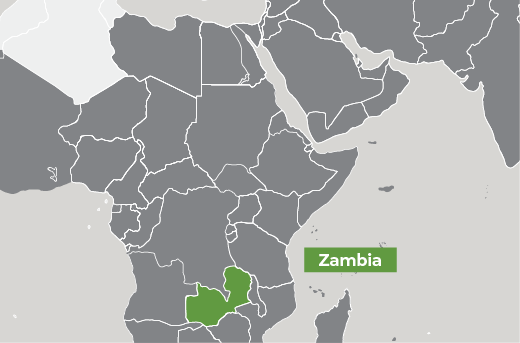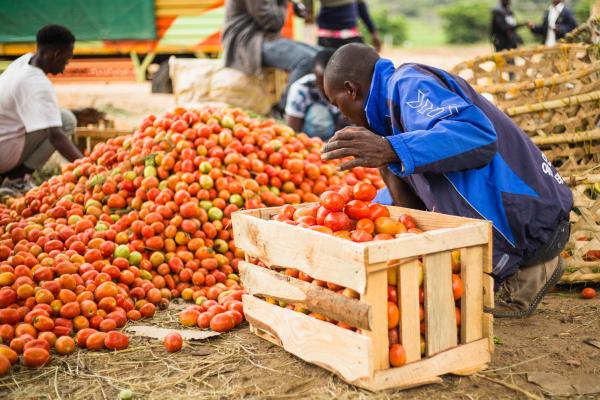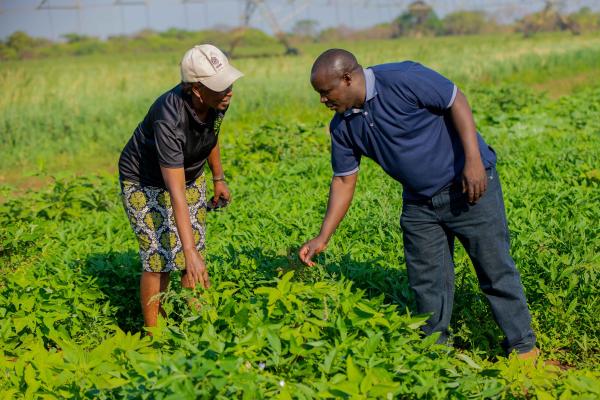Overview
This project aimed to identify and characterise the nature and scale of food and nutrition loss in urban agrifood chains in Lusaka City and define its drivers and implications.
Zambia is among the fastest urbanising countries, with Lusaka projected to become a major urban centre in Southern Africa.
This scenario implies that there will inevitably be a huge demand for food in cities and towns. This will be driven by a rise in urban population, diversified consumption patterns and demand is likely to put pressure on the already overstretched urban food supply chains.
Food and nutrition insecurity in Zambian urban centres has yielded major health effects including stunting and permanently reduced cognitive function for small children, promoted child labour, and contributed to increased prevalence of nutrition-related diseases.
It is estimated that large open-air urban markets (informal) are clear determinants for food accessibility in Lusaka. However, the data available fails to provide detailed actor mapping and relations to outline what needs to be done and by whom to reduce the losses at all major post-harvest food flow stages to the markets in Lusaka.
This substantiates the need to conduct the proposed study as it will fill in the gaps in policy, practice, innovation, and research, and consequently contribute to the holistic and improved management of food chains for both urban and semi-rural populations of Lusaka.
This project is part of the Food Loss Research Program—a partnership between ACIAR and Canada’s International Research Development Centre. The program works with partners in developing countries to address food loss through innovative, locally driven solutions.
Research objectives
- Collecting data and mapping chain actors, processes, communications, power dynamics in the chains, social and gender relationships in the chains, and the roles of each of the actors in the chains; develop, for project use and wider dissemination, a clear and concise report and data sets on food losses and the urban food chain operations in Lusaka city.
- Analysing chain operations in Lusaka city using the information assembled, information gap identification, and determined further data collection; to identify potential ways of reducing food loss, improving food handling, storage, and timely logistics, thereby improving food accessibility and nutrition security for the urban poor in Lusaka city.
- Exploring and testing contextually relevant food innovations and interventions in food handling, preservation and storage, transportation, information use and exchange, and other aspects of chain operations to reduce food loss, improve food quality and safety, and enhance product flow through the chains.
Expected outcomes
- Improved stakeholder relationships and collaboration through a better understanding of the whole chain actors and their roles.
- Anticipated shortened chains and reduced time food stays within some chains through improved actor relationships and more collaboration along the whole agrifood chain.
- Improved food packing and handling by generating ideas and innovations and trialed these for use within the project and beyond. This will entail the introduction of alternative and improved food packaging and food packing, marketing, information use, food transportation, food storage, and preservation in urban and peri-urban contexts.
- Raising the prominence of food loss-nutrition loss nexus through the data collected and the profile of project stakeholders
- Improved and more inclusive food chain governance and business relations at all the identified stages along the whole chain. From an empowered and informed participation especially for women in the food chain to fair food pricing (Wholesale and retail) practices and increase the inclusion of and informed participation by food producers and traders in the value chains negotiating power.
- Provided alternative explanation of food and nutrition insecurity based on food losses: by linking food losses to urban food and nutrition insecurity in rapidly urbanising cities.
- Provided a foundation for future work using the data generated from the project for possible future research and policy innovation in food loss and nutrition security in Zambia and within the Southern Africa region.








